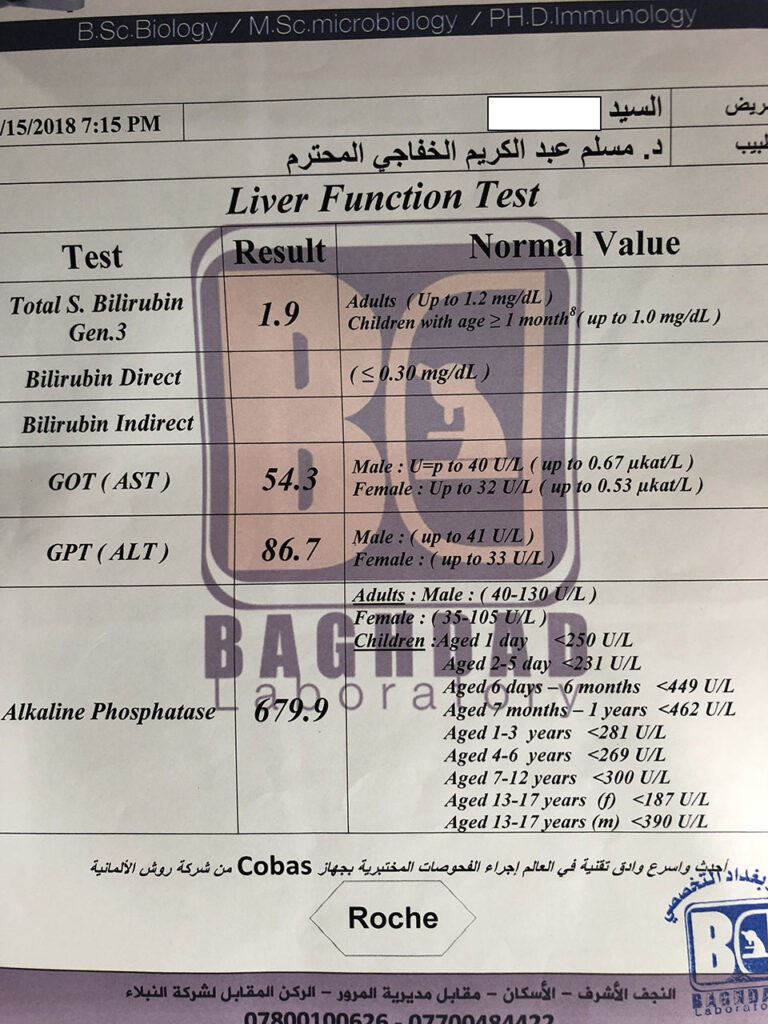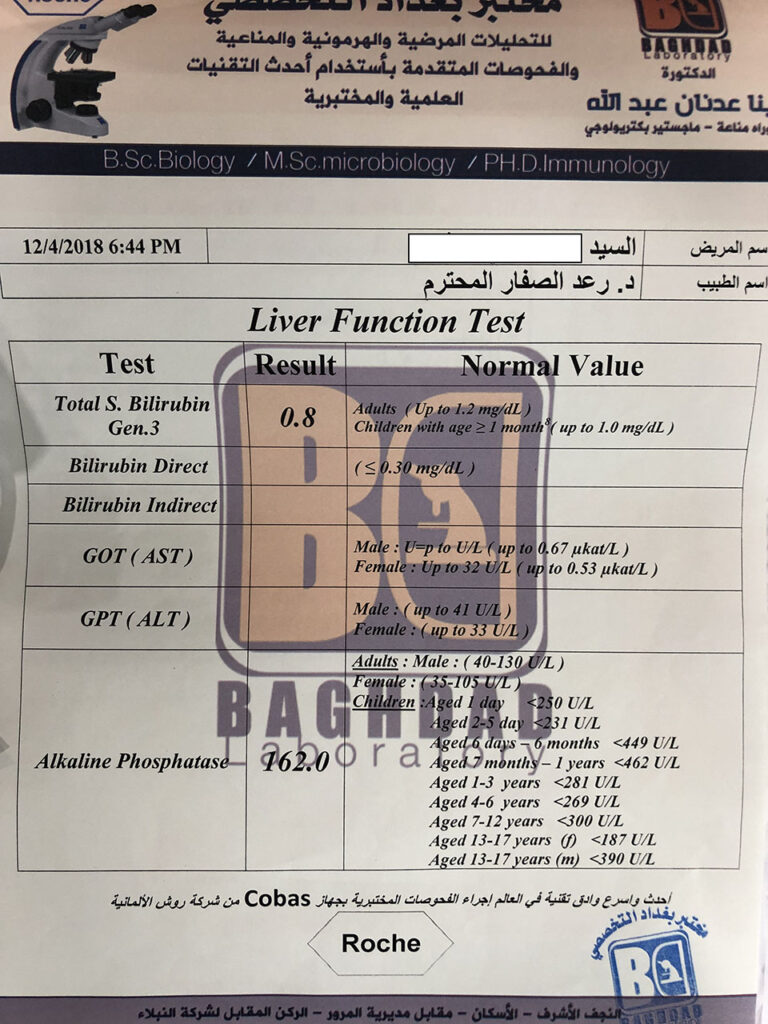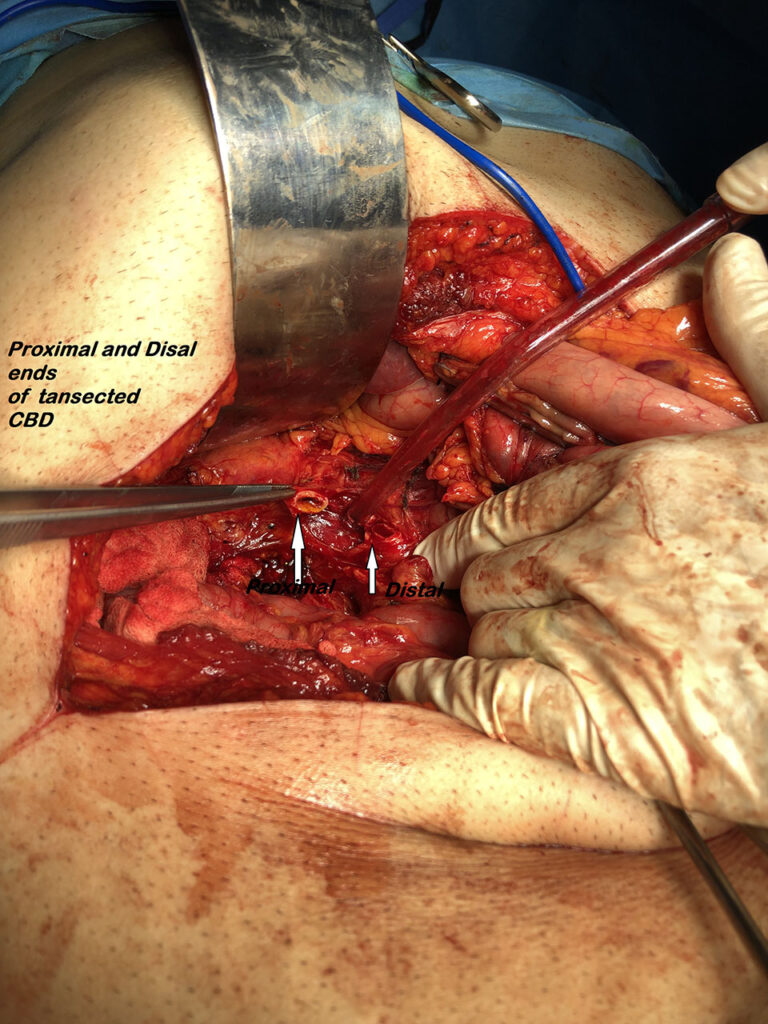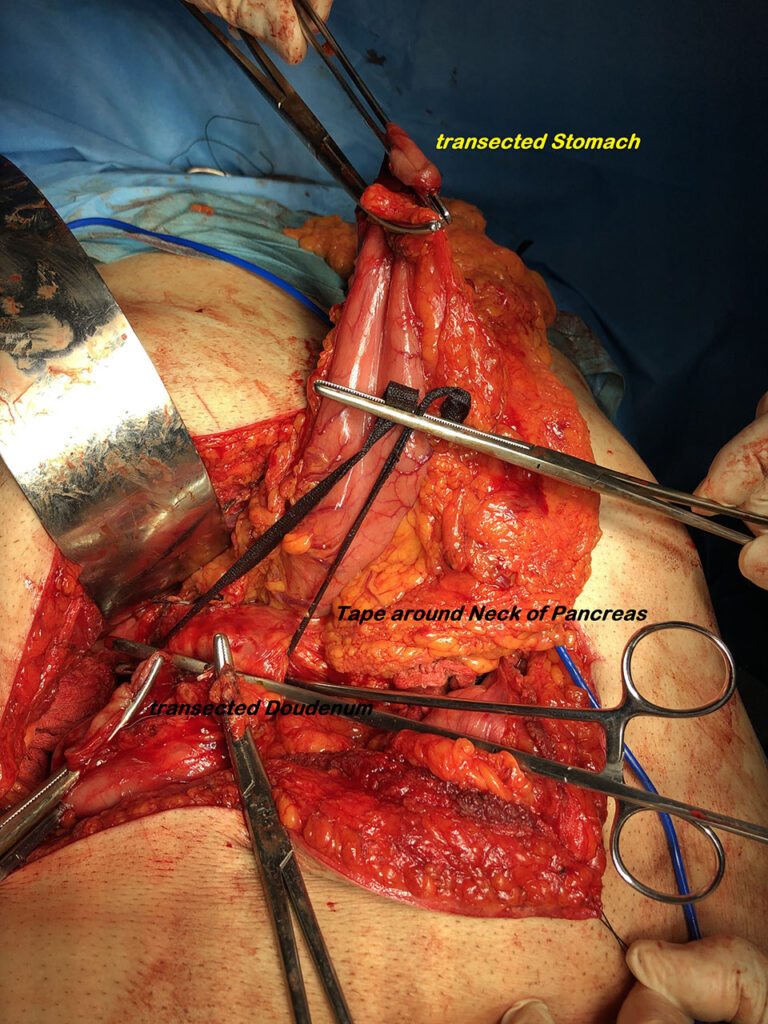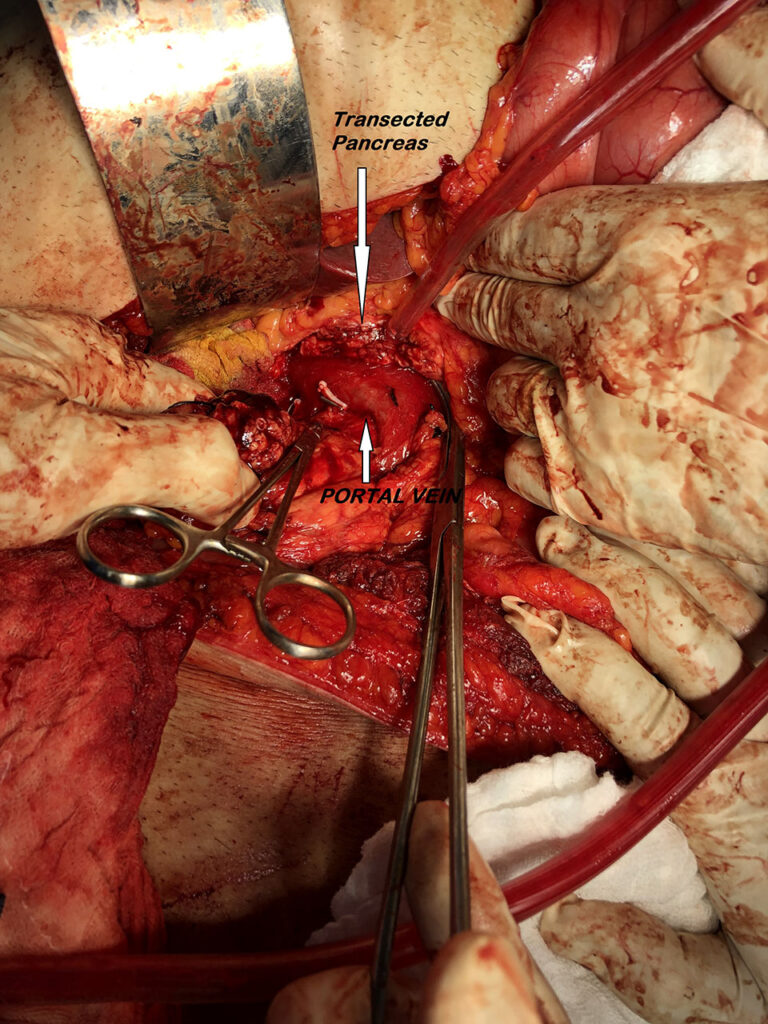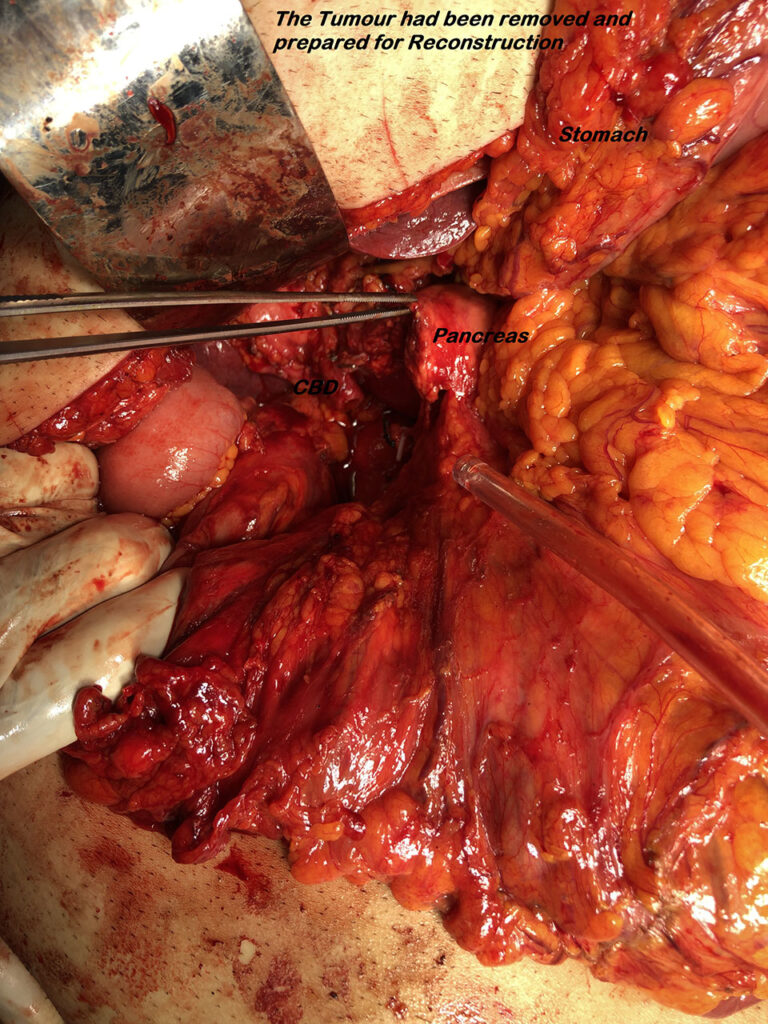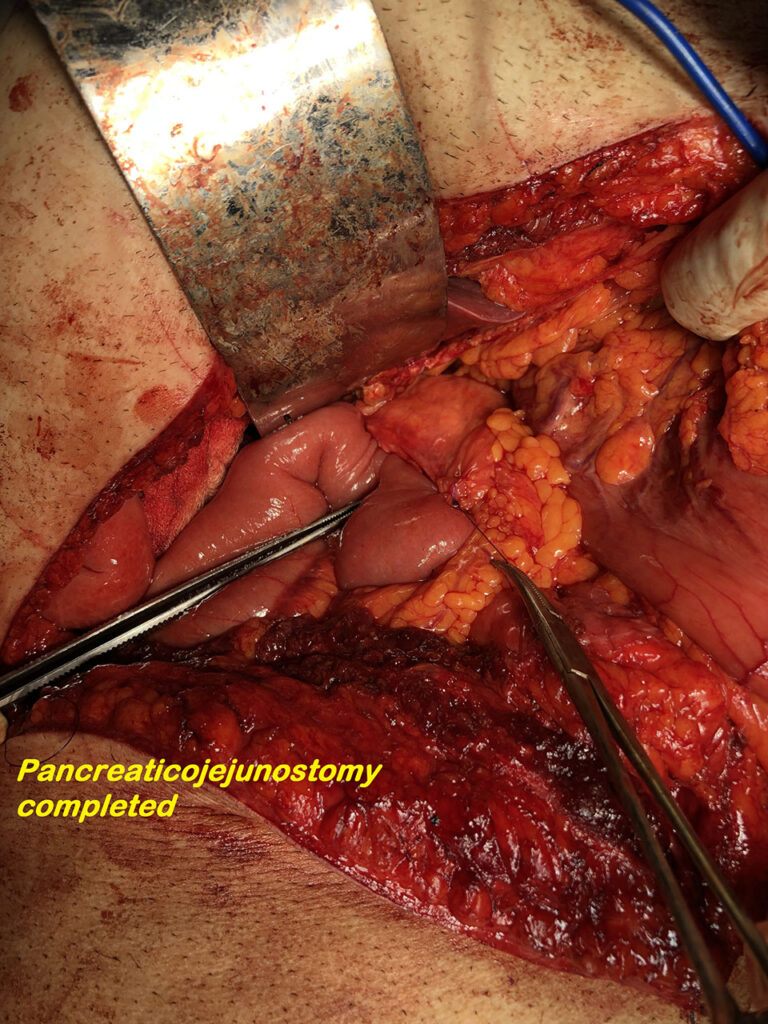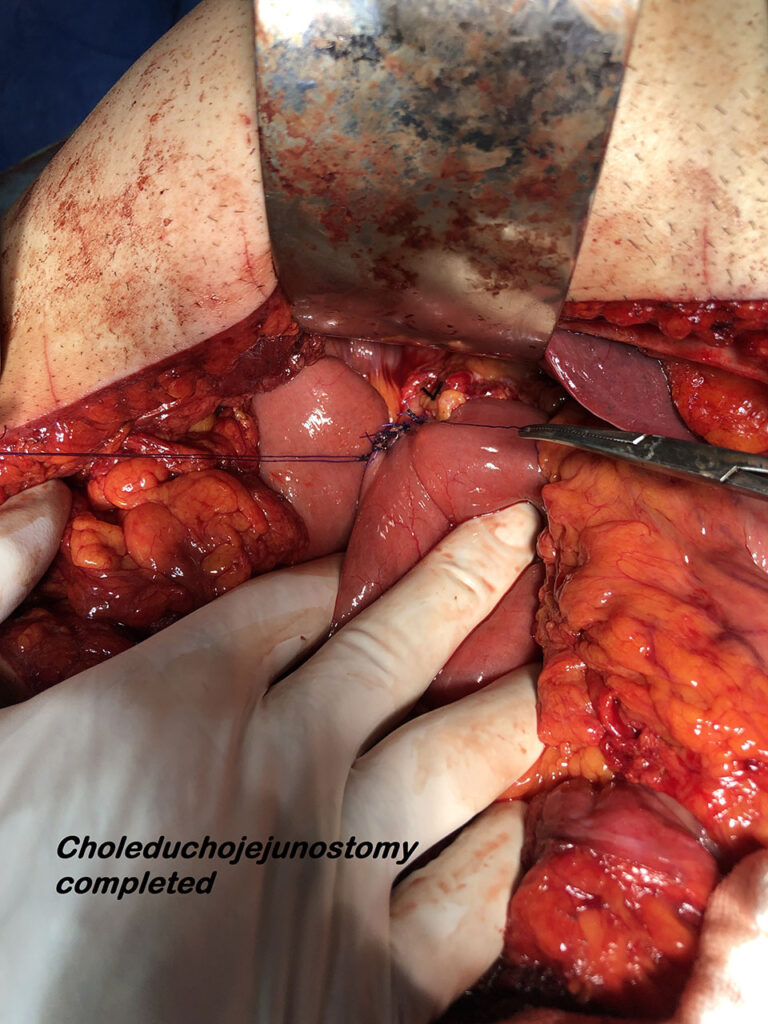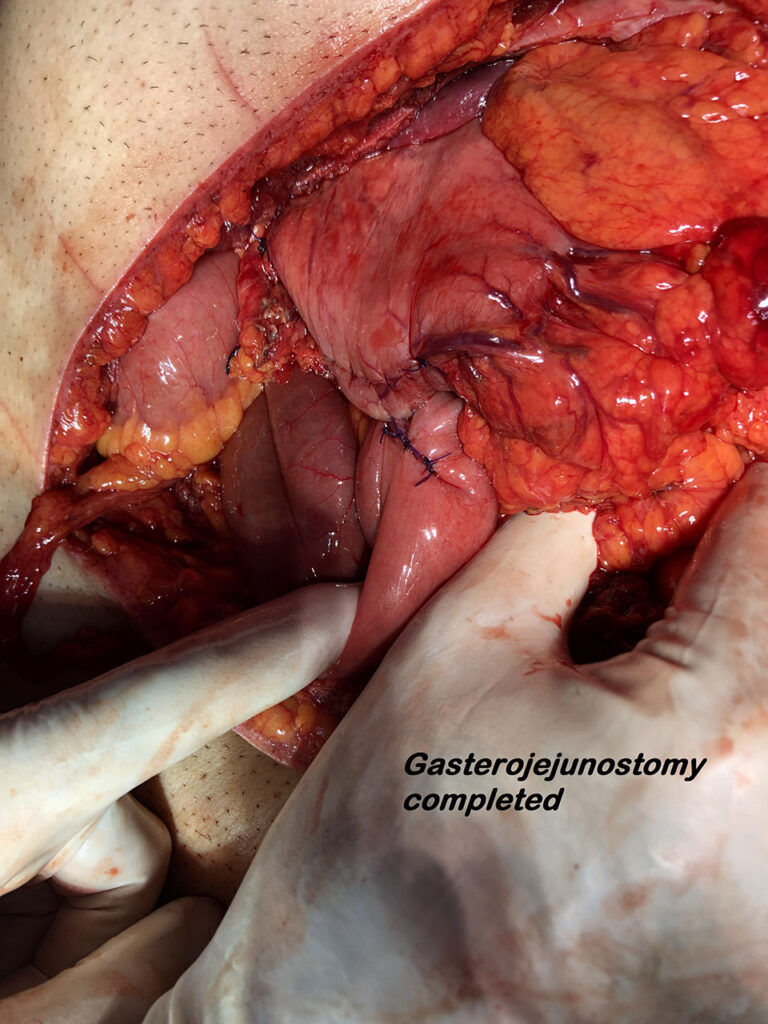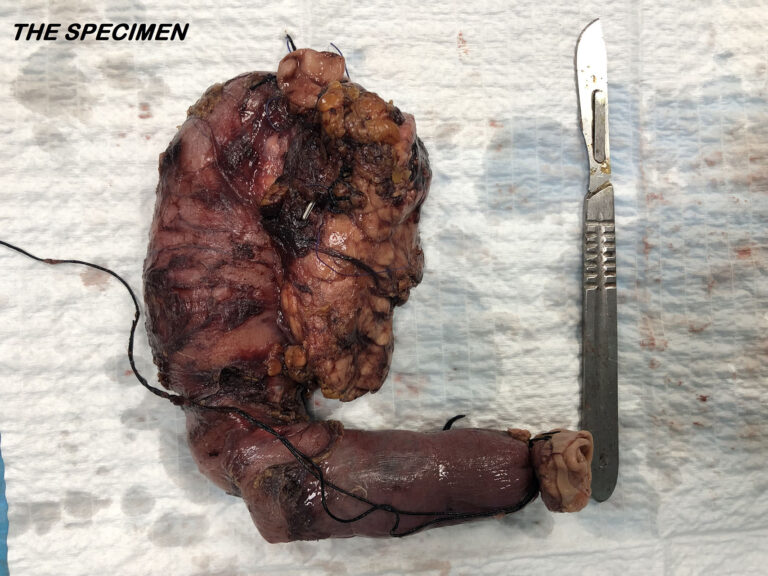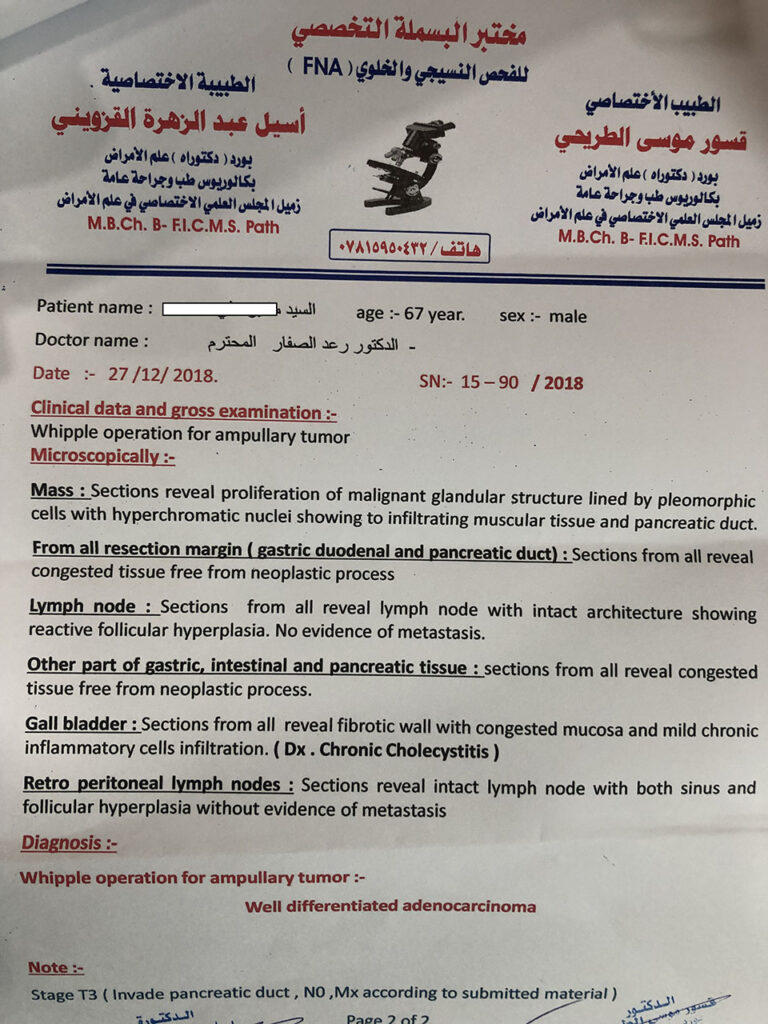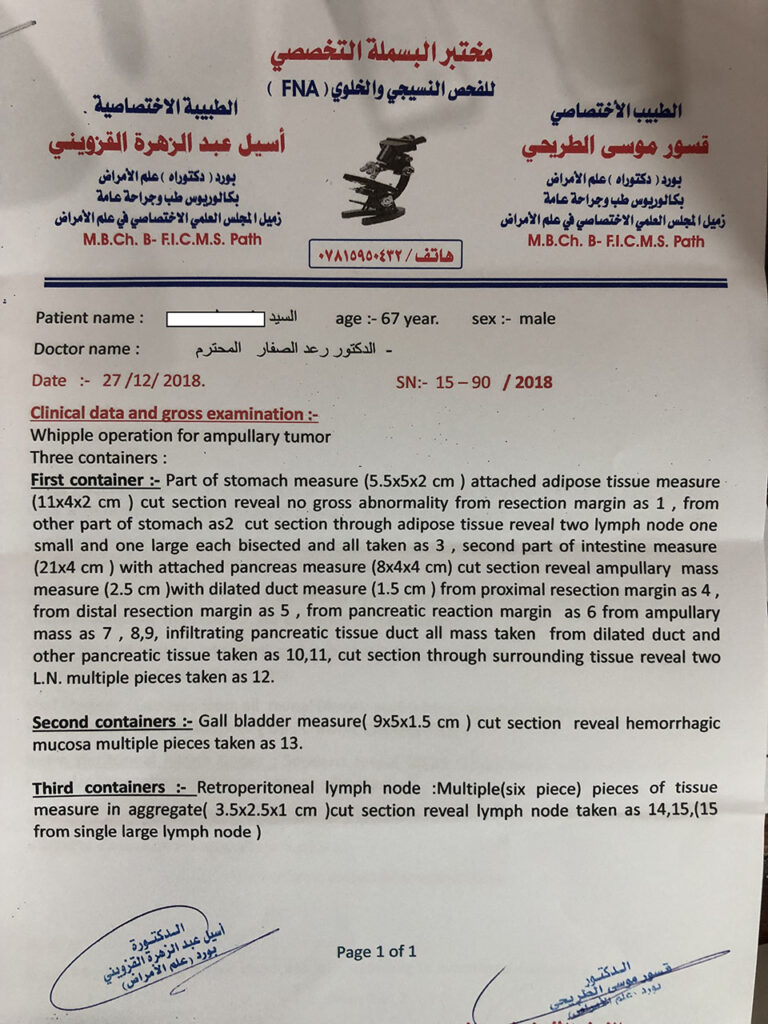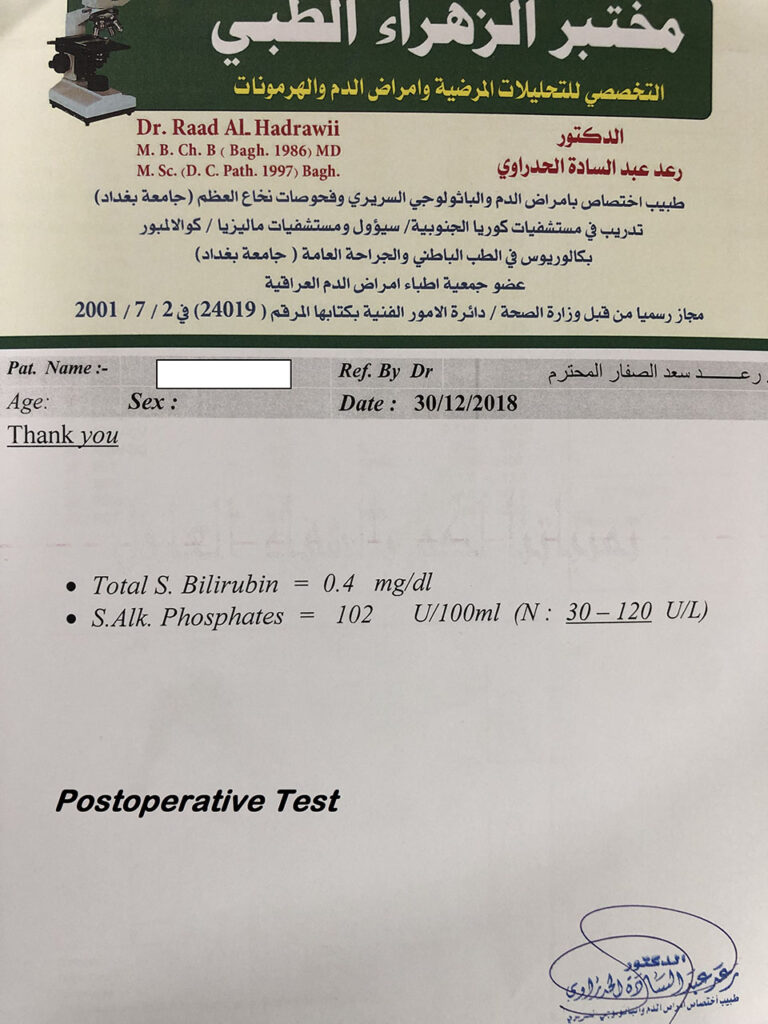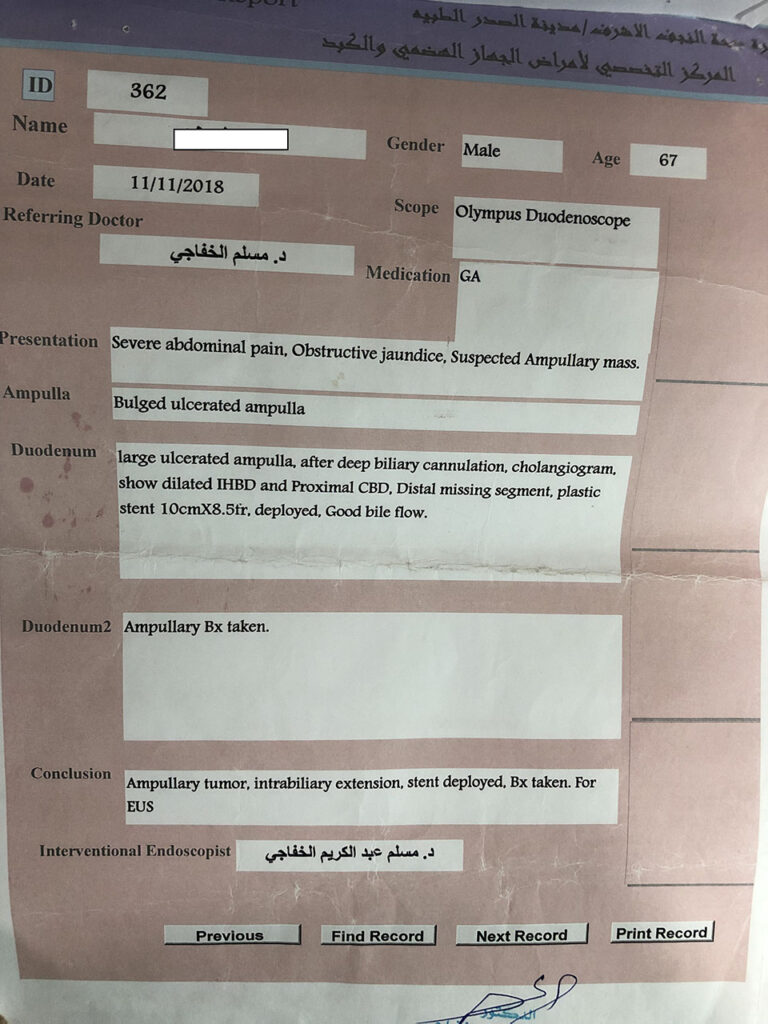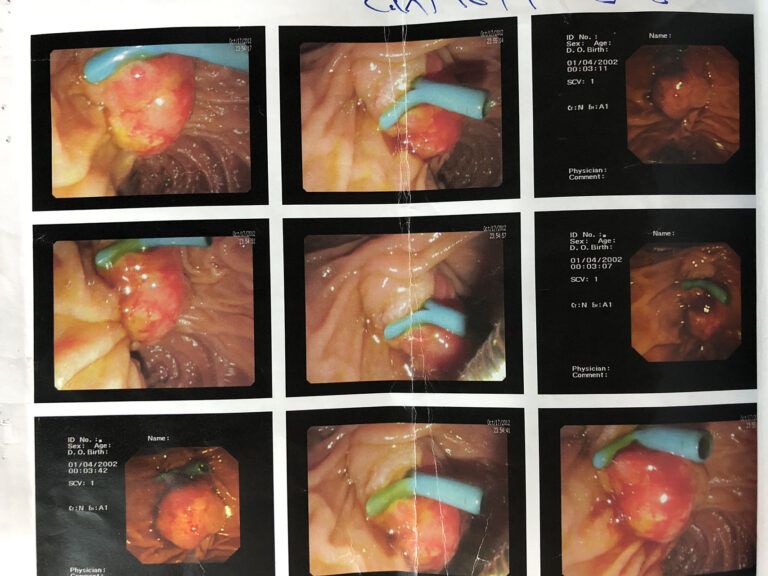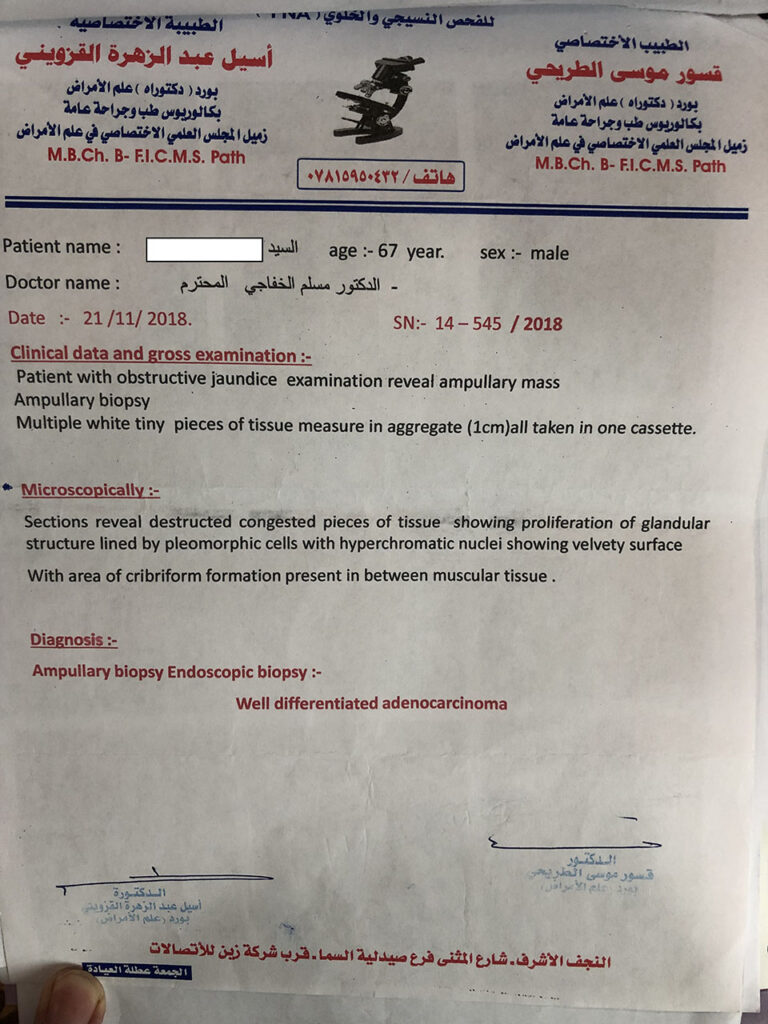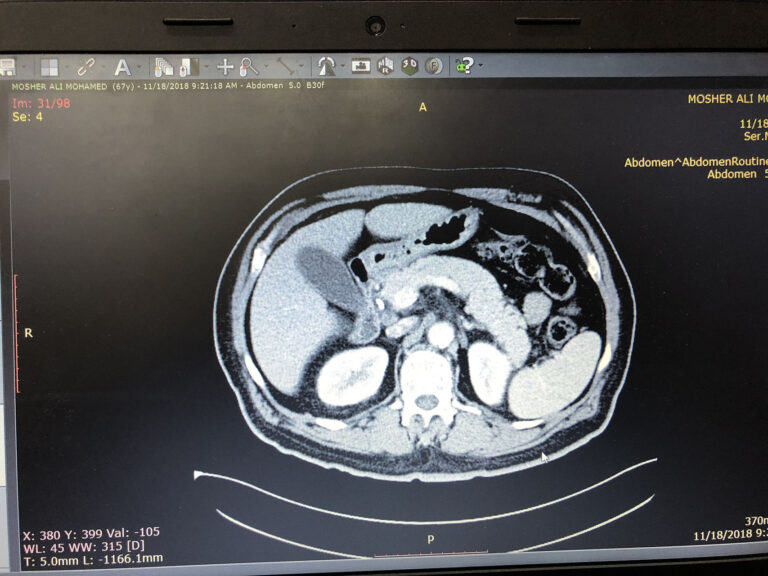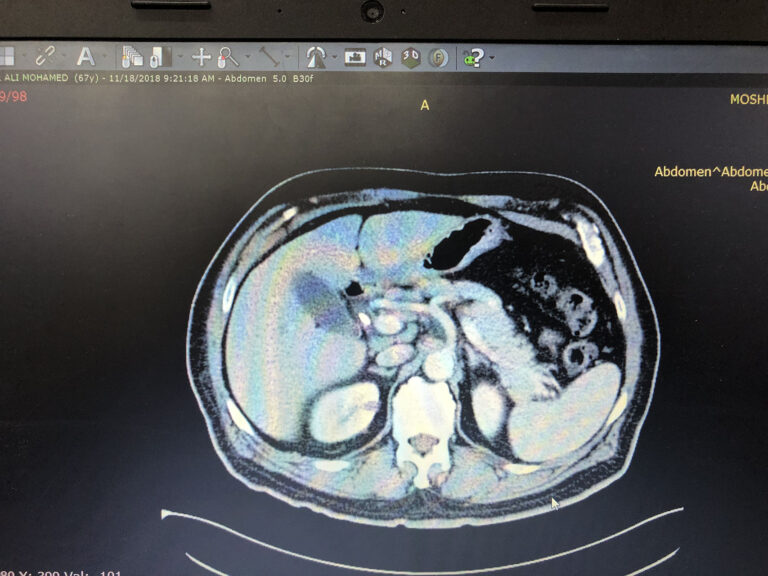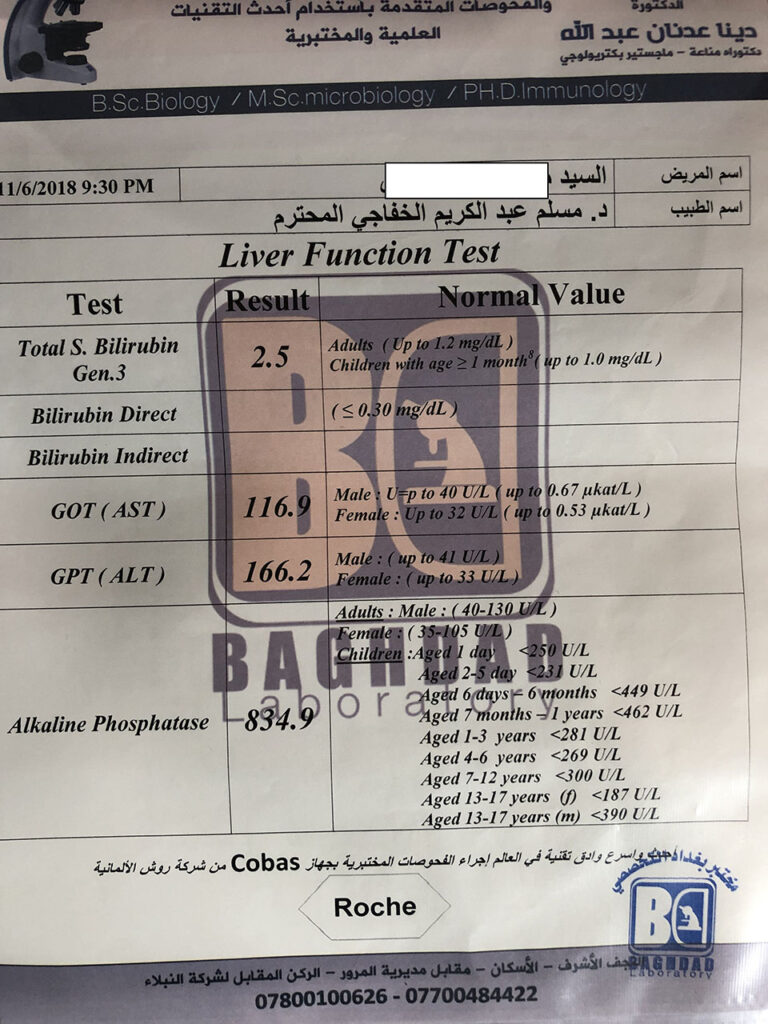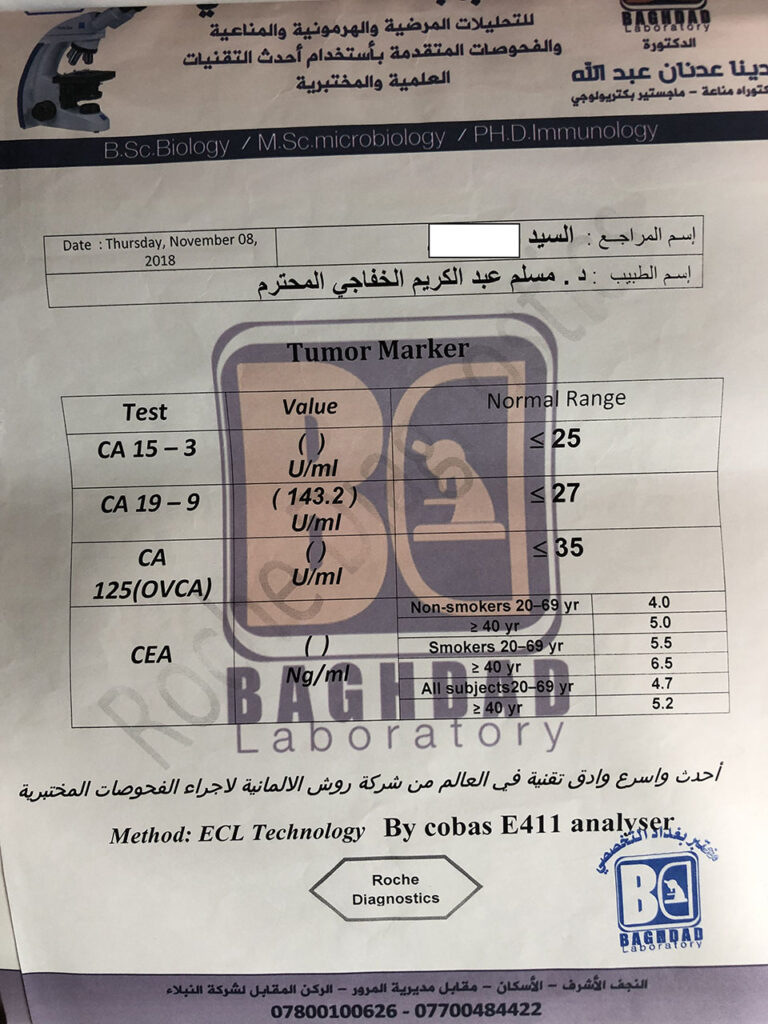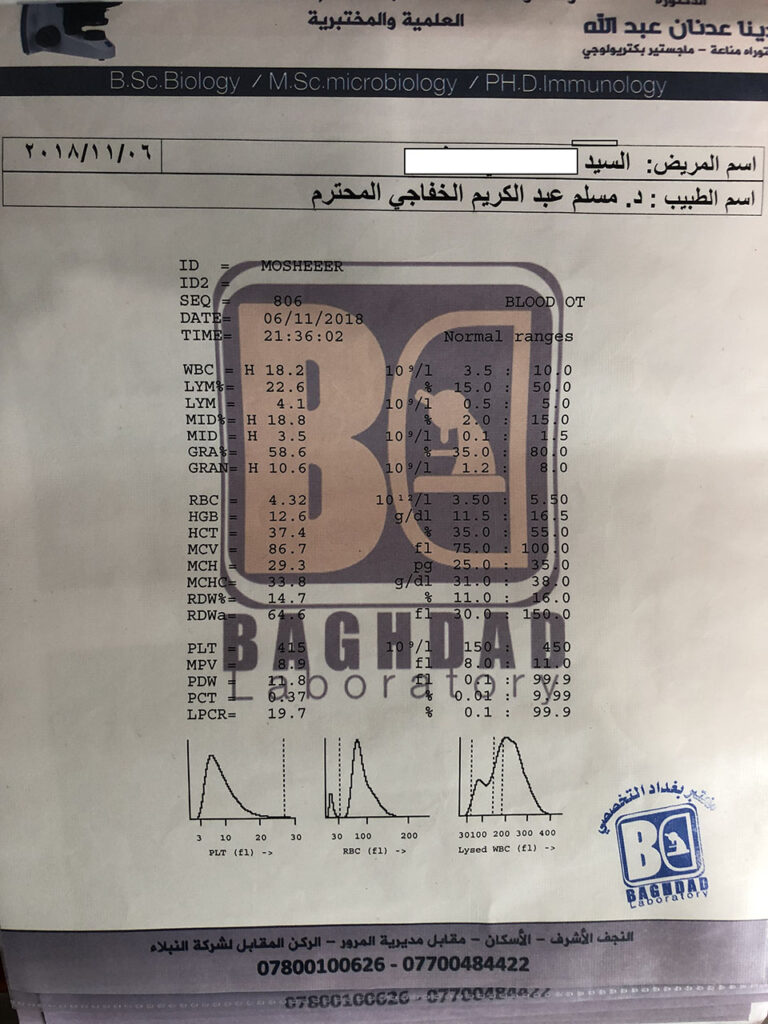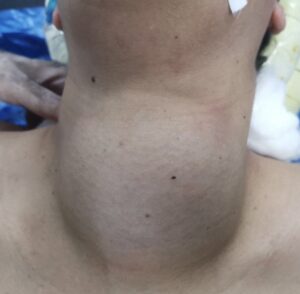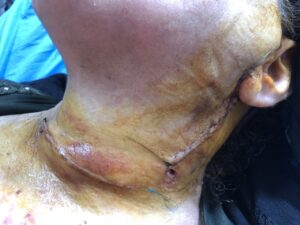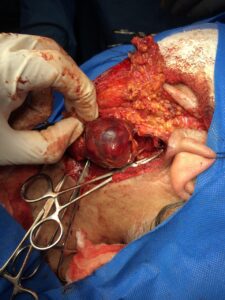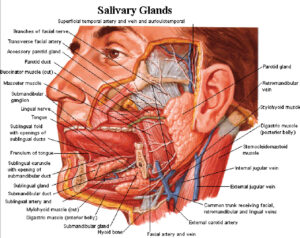The 15th Whipple’s operation by the same surgical team (Jan 2019)
Whipple’s pancreaticodoudenectomy for ampullary carcinoma
Case presentation
Sixty eight years old male patient referred by the gastroenterologist { Dr Muslim Al Khafagi }, as a case of ampulla tumor for Whipple’s operation. The patient diagnosed by abdominal US , abdominal CT scan, and ERCP ampulla biopsy plus CBD plastic stent. The histopathology of endoscopic biopsy was adenocarcinoma. The tumor was resectable and neither vascular invasion nor distal metastasis was detected. The patient has non relevant past medical history and negative past surgical history.
The patient prepared for surgery. Classical Whipple’s pancreaticodoudenectomy was done.
The operation done by same surgical team of 2 surgeons { Dr Raad Al Saffar and Dr Ahmed Rashid(expert digestive surgeon)}.
It was the 15th whipple’s operation done by the same surgical team. The first Whipple was done in 2009. All operations was successful and zero % mortality.
LigaSure (Covidien) and linear GIA stapler were used in the operation. He need intraoperative one pint blood transfusion. The operative time was 330 minutes and the recovery was smooth. The postoperative course was uneventful and he started oral intake in the fourth postoperative day. He discharged home in sixth postoperative day.
Review of Literature
Whipple procedure: a review of a 7-year clinical experience in a referral center for hepatobiliary and pancreas diseases
World J Surg Oncol. 2015; 13: 98.
Published online 2015 Mar 11. doi: 10.1186/s12957-015-0523-8
Amir Saraee, Jalal Vahedian-Ardakani, Ehsan Saraee, Roshanak Pakzad, and Massoud Baghai Wadji
ABSTRACT
Background
Pancreatic cancer is generally found in the older population Pancreaticoduodenectomy seems to be the only way in resolving these resectable tumors. Allen. O Whipple was the first to describe pancreaticoduodenectomy in 1935 as a modified procedure. This article is a case series with respect to the 7-year experience of the Whipple procedure in Firoozgar Teaching Hospital.
Methods
Patient surgery details were gathered from the surgical records of the operating room and their clinical records from the hospital archives. Data was analyzed with SPSS software (version 16.0.1). Those patients, whose tumor had invaded the superior mesenteric artery, had extensive portal vein involvement or distant metastasis was considered as unresectable.
Results
The first Whipple procedure was recorded in our hospital in 2008. From 2008 till 20 March 2014, 70 cases were collected and analyzed. The mean age of cases was 58.4 years, the mean hospital stay length was 12.9 days (±6.23 days), mean operation time was 376 min (±37.3 min),. The most common presenting symptom was jaundice (78.6 %). Delayed gastric emptying was the most common post-operative complication. The most prevalent cause of reoperation was intra-abdominal abscess. Major morbidities of these patients consisted of cardiac arrhythmias (21.4%) and pneumonia (10%). Minor complications were wound infection (17.1%) and delayed gastric emptying (32.9%). The statistics revealed pancreatic anastomosis failure as 2.9% and a decrease in mortality rate from 50% during the first years of this study to 16% to 20% during the last years.
Conclusions
In this case series, the time of operation decreased during the recent years .Analysis shows a correlation between operation time and pack cell transfused during the operation, but no correlation was found between operation time and post-operation hospitalization course. It is true that hospital setting, socioeconomic level of the patients including their compliance, and the expertise of the surgeons and surgical staff can have an influence on the result of this operation, but it seems that the magnitude of the surgical stress of this procedure and the (compromised) functional reserve of this patient population can be a notable factor influencing the outcome.
Keywords: Pancreatic cancer, Whipple procedure, Periampullary carcinoma
